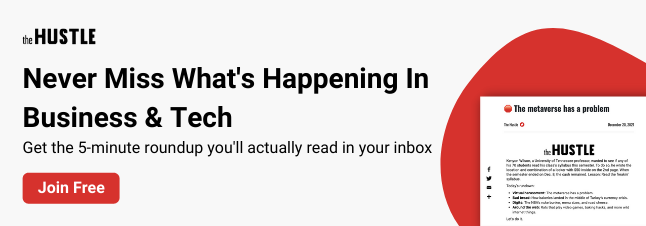For many startup founders, taking their company public is the ultimate sign of “making it.” But the road from startup to initial public offering (IPO) is often long and challenging.

Experts estimate that more than 90% of startups won’t make it to an IPO. Still, there are many founders who have stayed the course and proven that it’s possible to bring your vision to the public markets.
Here are some of the most notable IPOs of the recent past that you can look to for inspiration and valuable lessons.
1. Alibaba
- Industry: Technology
- IPO date: Sept. 19, 2014
- Capital raised: $25B
- Ticker: BABA
Former schoolteacher Jack Ma founded online marketplace Alibaba in 1999. The company has often been referred to as China’s Amazon. Alibaba went public on the New York Stock Exchange (NYSE) on Sept. 19, 2014.
While many high-growth technology companies go public on the Nasdaq due to lower listing fees, the NYSE rules let Alibaba’s founders retain more control over the company. That lent more prestige to the foreign-based company.
Trades opened more than 35% above its offer price of $68 and brought in $21.8B on the first day. Demand for the company was so high that underwriters exercised the greenshoe option to sell more shares than planned for, bringing the total IPO value to a record-breaking $25B.
2. Meta (Facebook)
- Industry: Social media
- IPO date: May 18, 2012
- Capital raised: $16B
- Ticker: META
As Meta (formerly Facebook) will prove, not all IPOs are roaring successes. Meta went public on May 18, 2012, as one of the most highly anticipated companies to hit the market at the time.
Despite the heightened attention, Meta’s stock price fell almost immediately following heavy sales from company insiders. It didn’t help that GM pulled its ads on Facebook due to ineffectiveness just days before the company listed.
The social media giant’s experience holds two valuable lessons. First, hype doesn’t always equal success. And second, your IPO doesn’t define your company’s future. More than 10 years after its rocky debut, Meta’s revenue has skyrocketed and its valuation is several times that of its IPO price.
3. Airbnb
- Industry: Hospitality
- IPO date: Dec. 10, 2020
- Capital raised: $3.5B
- Ticker: ABNB
Founded in 2008, Airbnb disrupted the hotel industry by allowing individuals to rent rooms and homes directly to others. It went public during the pandemic, when the hospitality industry took heavy hits due to the global pandemic.
Despite challenging market conditions, Airbnb’s shares doubled on its debut day. Airbnb raised $3.5B, earning it a valuation of over $100B and making it Wall Street’s largest IPO in 2020.
Shri Ganeshram, managing partner at venture capital firm Fresh VC explains, “What made Airbnb’s IPO so special was its resilience in the face of a global pandemic.” Instead of crumbling, Airbnb’s executives brought their focus back to the core business.
The company reduced its marketing spending by $1B and cut executive salaries in half. That enabled it to take care of its customers by offering generous refund policies, launching online experiences, and introducing improved cleaning procedures.
4. Beyond Meat
- Industry: Food
- IPO date: May 2, 2019
- Capital raised: $240m
- Ticker: BYND
Beyond Meat is one of the pioneers of plant-based protein products. It was founded in 2009, and became the first vegan “meat” brand to go public a decade later.
Being the first of its kind on the NYSE worked well for Beyond Meat, which opened at a trading price of $46 per share (almost double its IPO price of $25). During its IPO day, shares rose more than 190%, and trade was temporarily halted due to volatility.
After its buzzworthy debut, Beyond Meat became a hot topic for investors. The stock proceeded to gain 859% in its first three months.
That being said, Beyond Meat’s share price has since dropped more than 50% from its opening price of $46. Despite the company’s initial performance, it faced significant challenges in 2022, including inflation, fewer people going to restaurants, and the introduction of more competitive brands.
5. DoorDash
- Industry: Ecommerce delivery
- IPO date: Dec. 9, 2020
- Capital raised: $3.4B
- Ticker: DASH
Originally called Palo Alto Delivery, DoorDash was founded in 2013 by Stanford students Tony Xu, Evan Moore, Andy Fang, and Stanley Tang. The app connects restaurants with delivery services powered by independent contractors.
During the pandemic shutdowns, DoorDash proved to be a lifeline for local businesses. It also expanded its services to include delivery of groceries and household essentials.
The company took advantage of its soaring demand and went public on Dec. 9, 2020. Shares opened at a price of $182 (78% higher than its IPO price of $102). DoorDash raised $3.4B, making it the second-largest stock market debut of the year after Airbnb.
6. Bumble
- Industry: Online dating
- IPO date: Feb. 11, 2021
- Capital raised: $2.15B
- Ticker: BMBL
Whitney Wolfe Herd launched the online dating and networking app Bumble in 2014. Bumble differentiated itself from other dating apps by only allowing women to initiate conversations in matches.
The company went public in 2021, making Herd (age 31 at the time) the youngest female founder to lead an IPO. Herd also joined the small list of female founders who took their companies public.
Bumble’s stock opened at almost 77% up, trading at $76 per share. In total, Bumble sold 50m shares and raised $2.15B with its IPO.
Before going public, Bumble launched a partnership with Serena Williams in 2019, which led to several initiatives that positioned the company as a female-empowerment platform (setting it apart from other dating apps). In 2020, Bumble reached 100m users and had surpassed its revenue run rate for two years.
The company’s solid pre-IPO performance, combined with its celebrity partnership and clear vision, helped create a sense of anticipation and set the stage for a successful IPO.
7. Expensify
- Industry: Technology
- IPO date: Nov. 9, 2021
- Capital raised: $262m
- Ticker: EXFY
Founded by CEO David Barrett in 2008, Expensify provides expense management software for businesses and individuals. In 2021, Expensify debuted on the Nasdaq. On its IPO day, its share price increased 52%, and the company’s IPO raised $262m.
Unlike many tech companies that go public before breaking even, Expensify was profitable. It reported an income of $14.7m in the first six months of 2021. Not to mention, Expensify achieved $100m in annual recurring revenue (ARR) and was listed as the 10th most efficient tech company in 2020.
Expensify’s impressive pre-IPO track record spoke to its solid business model and proof of product-market fit, which proved encouraging to investors on IPO day. “This is a lesson for founders to focus on building a product that truly meets the needs of their customers,” explains Ganeshram.
8. SoFi Technologies, Inc.
- Industry: Fintech
- IPO date: June 1, 2021
- Capital raised: $2.4B
- Ticker: SOFI
A group of Stanford business school students founded SoFi in 2011 with the mission of making it easier and more affordable to repay student debt. It has since grown into an all-in-one personal finance solution where users can save, bank, and even invest in cryptocurrency.
A decade after its founding, the company merged with a special purpose acquisition company (SPAC) in 2021, raising $2.4B in capital.
The company carved out a solid niche in financing, but it also crafted a compelling growth story before going public. CEO Anthony Noto told CNBC at the time that SoFi was the only company that had successfully brought a full suite of financial service products to one mobile app.
9. Rivian
- Industry: Automotive and Electric Vehicles
- IPO date: Nov. 10, 2021
- Capital raised: $12B
- Ticker: RIVN
Founded in 2009, Rivian is an American manufacturer of electric vehicles (EVs). It raised $12B in its 2021 IPO, making it the largest US IPO of the year.
What’s notable about this IPO is that Rivian’s vehicles were not available for mass sale at the time it went public.
Instead, Rivian boasts Amazon and Ford as major backers. In addition to its stake in the company, Amazon is Rivian’s most significant commercial customer, with an order placed for 100k vehicles.
Rivian’s impressive debut performance demonstrates the value of having key stakeholders and being one of the first companies to launch in a trending industry.
10. Duolingo
- Industry: Educational Technology
- IPO date: July 28, 2021
- Capital raised: $520.8m
- Ticker: DUOL
Duolingo uses artificial intelligence (AI) to make language learning fun and accessible to everyone. The app uses gamification to set itself apart from the competition, and caters to pop culture fandoms by including languages like High Valyrian (“Game of Thrones”) and Klingon (“Star Trek”).
The company’s share price surged 40% on its debut day. Duolingo sold 5.1m shares to raise $520.8m in capital.
Before going public in 2021, Duolingo doubled its revenue from 2019 to 2020, largely due to a significant increase in demand for its paid subscription tiers.
The company’s public launch also benefited from increased interest in edtech as the pandemic shifted many learning environments to online platforms.
Having a solid financial track record and positive revenue forecasts can go a long way in supporting a successful public debut. On the other hand, companies like Rivian show that investor appetite and reputable stakeholders can be just as important.
Ideally, your preparation and the market’s interest fall into place on debut day, and you get to start off on the right foot. But, as Meta proved, you don’t need the perfect start to be a successful public company. While an IPO may seem like an end goal, it’s really just a beginning.




![How Startups Are Raising Money Today [Data + Expert Insights]](https://www.hubspot.com/hubfs/Copy%20of%20Featured%20Image%20Template%20Backgrounds%20%2862%29.png)


![How to Write an Investment Proposal [Template + Examples]](https://www.hubspot.com/hubfs/ft-investment.webp)
![How to Write a Partnership Proposal [Examples + Template]](https://www.hubspot.com/hubfs/ft-proposal.webp)



![300+ Business Name Ideas to Inspire You [+7 Brand Name Generators]](https://www.hubspot.com/hubfs/business-name-ideas_17.webp)
